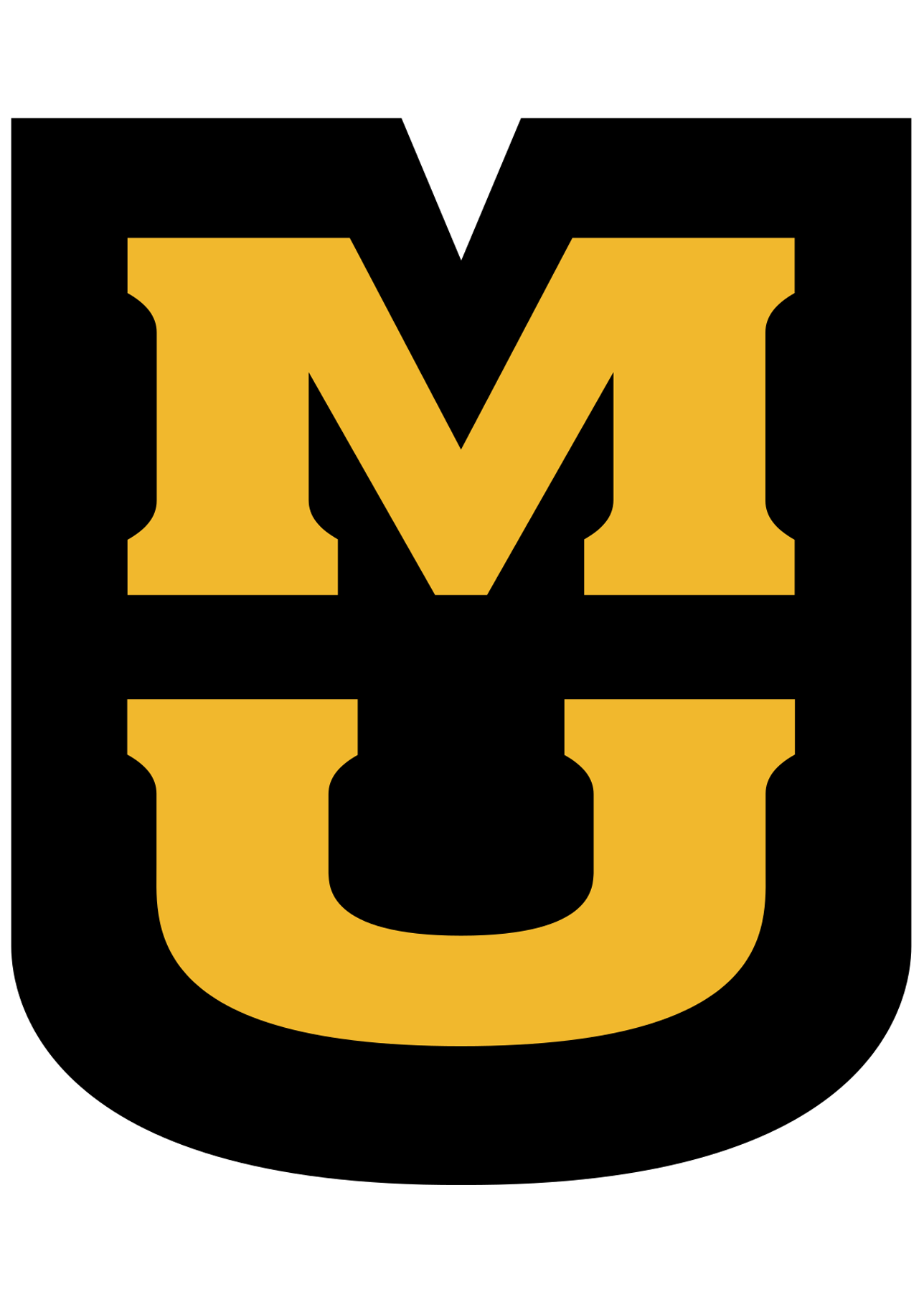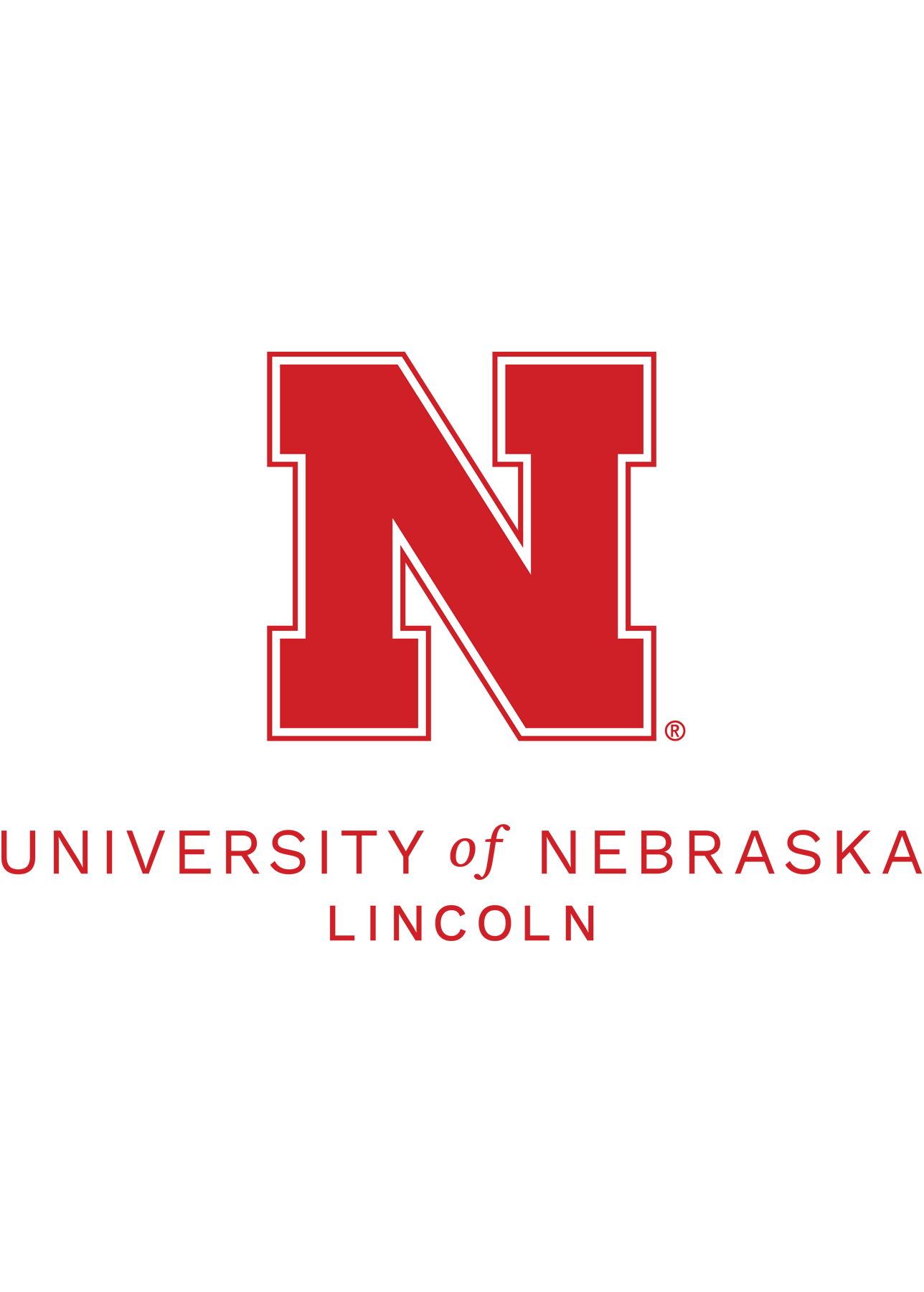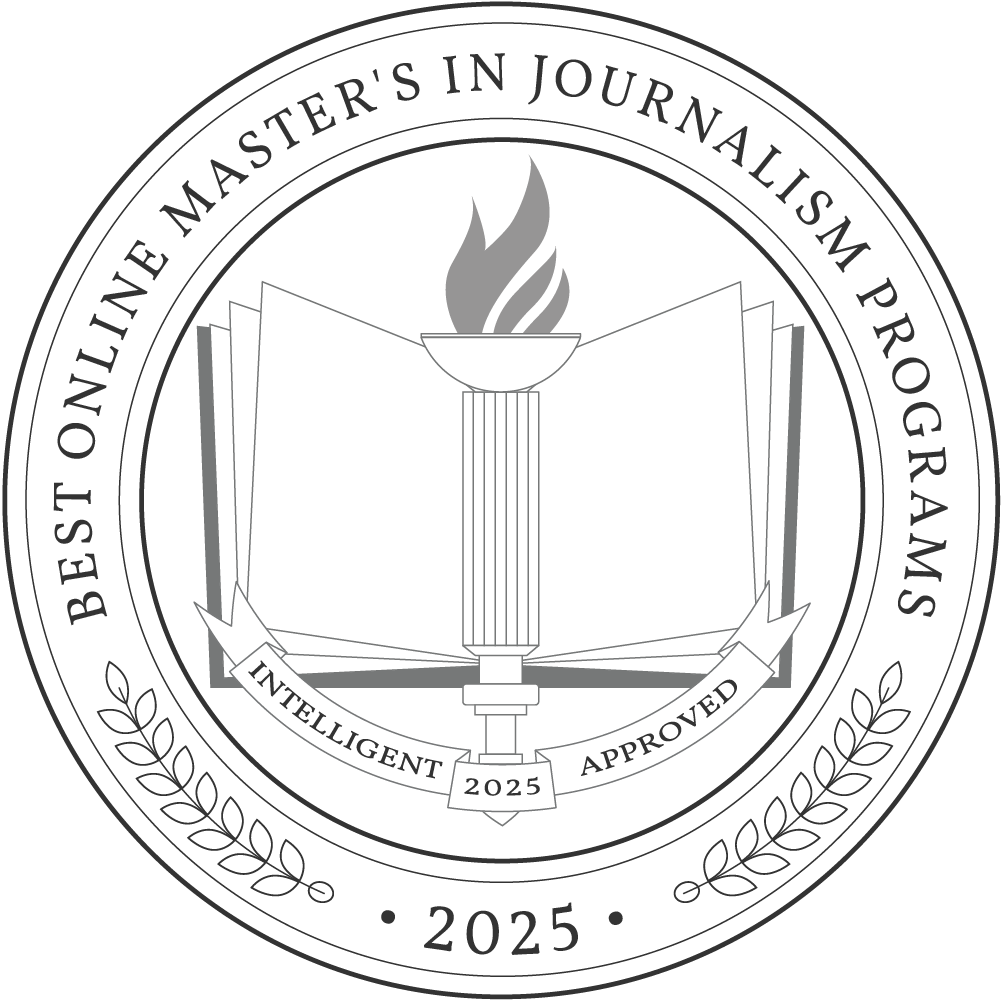An online master’s in journalism helps prepare graduates for a wide array of potential careers. The most obvious is that it can help jumpstart or further a journalism career (median salary of $55,960 per year). This graduate degree can help prepare you for jobs outside the journalism field as well, such as public relations manager (median salary of $125,620 per year).
In most cases, full-time students can complete an online master’s in journalism program in two years, and some accelerated programs are also available. And the average tuition for such a program is $20,513 per year, making it an affordable way to continue your education and widen your career prospects.
We interviewed Blanca Villagomez, a program counselor and coordinator at UC-Irvine, for her guidance on selecting the best online master’s in journalism program, navigating the application process, and securing funding for your degree.
Why Trust Us
The Intelligent.com Higher Education Team is dedicated to providing students with independent, equitable school and program rankings and well-researched resources. Our expert-driven articles cover topics related to online colleges and programs, paying for school, and career outlooks. We use data from the U.S. Department of Education’s College Scorecard, the National Center for Education Statistics, and other reputable educational and professional organizations. Our academic advisory team reviews content and verifies accuracy throughout the year for the most current information. Partnerships do not influence rankings or editorial decisions.
- Analyzed over 2,000 national, accredited, and nonprofit colleges and universities
- 800+ rankings pages are reviewed and updated yearly
- Content is informed by reputable sources, surveys, and interviews with academic advisors and other experts
- Over 100 data points are reviewed for accuracy and quality throughout the year, including sources
How we rank schools
Our list features the best online master’s in journalism degree programs at top colleges nationwide. Each school featured is a nonprofit, accredited institution — either public or private — with a high standard of academic quality for post-secondary institutions.
We evaluated each school’s program on tuition costs, admission, retention and graduation rates, faculty, reputation, and the student resources provided for online students. We collected data from trusted sources like the National Center for Education Statistics, individual school and program websites, school admissions counselors, and other data sources. Then, we calculated the Intelligent Score on a scale of 0 to 100 based on the following criterion:
Academic Quality:
- Admission rate versus enrollment rate
- Retention rate of students who return after year one
- Accreditation status (regional and programmatic)
- Nonprofit status, both private and public institutions
Graduation Rate
- Overall graduation rate
- Total number of currently enrolled students, including diversity metrics
- Student-to-faculty ratio
Cost and ROI
- In-state and out-of-state per-credit tuition rates and fees
- Required credits to graduate
- Earning potential after graduation
- Availability of federal student loans, scholarships, and other financial aid options
Student Resources
- Available student services for online-only and hybrid programs
- On-campus amenities like tutoring centers and the number of libraries
Read more about our ranking methodology.
Best 18 Accredited Online Master’s in Journalism Programs
FiltersInstitution Type
Status
- Intelligent Score
- Alphabetically By University Name
- Acceptance Rate
- Enrollment
- In-state Graduate Tuition
- Out-of-state Graduate Tuition
- In-state Undergraduate Tuition
- Out-of-state Undergraduate Tuition

Emerson College
Intelligent Score: 99.29In-state: $49,536
Out-of-state: $49,536
In-state: $31,104
Out-of-state: $31,104
SAT: 1190-1380
ACT: 27-31
$1,402
Online
New England Commission of Higher Education
32

University of Georgia
Intelligent Score: 97.89In-state: $9,790
Out-of-state: $28,830
In-state: $8,878
Out-of-state: $8,878
SAT: 1250-1460
ACT: 29-33
$645
Online
Accrediting Council on Education in Journalism and Mass Communications
33

Harvard Extension School
Intelligent Score: 97.19In-state: $49,653
Out-of-state: $49,653
In-state: $49,448
Out-of-state: $49,448
SAT: 1460-1580
ACT: 33-35
$805
Online
New England Commission of Higher Education
48

University of Missouri
Intelligent Score: 96.71In-state: $9,330
Out-of-state: $27,612
In-state: $9,478
Out-of-state: $9,478
SAT: 1110-1320
ACT: 23-29
Resident: $379
Non-Resident: $756
Online
Higher Learning Commission
33

University of South Florida
Intelligent Score: 94.78In-state: $4,559
Out-of-state: $15,473
In-state: $8,350
Out-of-state: $8,350
SAT: 1160-1320
ACT: 25-30
In-State: $468
Out-of-State: $914
Online
Southern Association of Colleges and Schools Commission on Colleges
33

University of Memphis
Intelligent Score: 93.59In-state: $8,208
Out-of-state: $12,048
In-state: $9,216
Out-of-state: $9,216
SAT: 990-1200
ACT: 19-26
$646
Online, On Campus
Southern Association of Colleges and Schools Commission on Colleges
33

University of Nebraska - Lincoln
Intelligent Score: 92In-state: $7,770
Out-of-state: $24,900
In-state: $6,138
Out-of-state: $6,138
SAT: 1110-1320
ACT: 22-28
Residnet: $357
Non-Resident: $700
Online, On Campus
Higher Learning Commission
36

Regent University
Intelligent Score: 91.39In-state: $17,220
Out-of-state: $17,220
In-state: $15,552
Out-of-state: $15,552
SAT: 940-1220
ACT: 21-29
$670
Online
Southern Association of Colleges and Schools Commission on Colleges
33

University of Alabama
Intelligent Score: 90.81In-state: $10,780
Out-of-state: $30,250
In-state: $10,780
Out-of-state: $10,780
SAT: 1070-1330
ACT: 23-31
$440
Online
Southern Association of Colleges and Schools Commission on Colleges
31

Ball State University
Intelligent Score: 90.72In-state: $9,482
Out-of-state: $26,470
In-state: $9,328
Out-of-state: $9,328
SAT: N/A
ACT: N/A
Resident: $464
Non-Resident: $696
Online
Accrediting Council on Education in Journalism and Mass Communications
36

University of Colorado Boulder
Intelligent Score: 89.53In-state: $33,466
Out-of-state: $60,716
In-state: $59,883
Out-of-state: $59,883
SAT: 1160-1390
ACT: 26-32
In-State: $744
Out-of-State: $1,973
Online
Higher Learning Commission
30

New York University
Intelligent Score: 89.52In-state: $52,204
Out-of-state: $52,204
In-state: $34,704
Out-of-state: $34,704
SAT: 1370-1540
ACT: 31-34
$2,185
Online
Middle States Commission on Higher Education
30-32

Kent State University
Intelligent Score: 88.87In-state: $10,810
Out-of-state: $19,686
In-state: $11,766
Out-of-state: $11,766
SAT: 1020-1210
ACT: 20-26
Resident: $571
Non-Resident: $581
Online
Higher Learning Commission
33

Arizona State University
Intelligent Score: 88.50In-state: $10,710
Out-of-state: $28,800
In-state: $11,720
Out-of-state: $11,720
SAT: 1100-1320
ACT: 21-28
$576
Online
Higher Learning Commission
30

St. Bonaventure University
Intelligent Score: 87.2In-state: $35,450
Out-of-state: $35,450
In-state: $14,130
Out-of-state: $14,130
SAT: 1030-1228
ACT: 21-29
$815
Online
Accrediting Council on Education in Journalism and Mass Communications
30

University of Arkansas
Intelligent Score: 87.18In-state: $7,568
Out-of-state: $24,056
In-state: $7,752
Out-of-state: $7,752
SAT: 1090-1280
ACT: 23-29
$446
Online
Higher Learning Commission
30

American University
Intelligent Score: 83.75In-state: $50,542
Out-of-state: $50,542
In-state: $34,533
Out-of-state: $34,533
SAT: 1220-1390
ACT: 27-32
$2,000
Online
Middle States Commission on Higher Education
30

Syracuse University
Intelligent Score: 83.28In-state: $53,432
Out-of-state: $53,432
In-state: $40,392
Out-of-state: $40,392
SAT: N/A
ACT: N/A
$1,945
Online
Middle States Commission on Higher Education
40
How to Choose an Online Master’s in Journalism Program
Choose your area of study
This degree is available as a Master of Arts (MA) or Master of Science (MS). MS programs are more research-focused, while MA programs are rooted in a humanities framework.
Some online master’s in journalism programs offer separate areas of study, or concentrations, in different aspects of journalism. These aspects typically include arts and culture, business and economics, digital journalism, and global journalism.
Those who already know what career they want to pursue after graduation should find a graduate program catering to their specific needs. For those unsure about their future career, exploring the areas of study offered by different schools may inspire them. However, regardless of future employment, all programs from reputable institutions will help ground students in the best practices of modern journalism.
“A college education requires an investment of time, money, and energy, so it’s important for students to reflect on their motivations for pursuing a degree,” Villagomez says. “I encourage students to start by reflecting on their academic interests, career goals, and the types of learning environments they thrive in to identify the best programs for them.”
Research schools and programs
We previously touched on the fact that students will want to research different areas of study to help find the program best suited to their needs, and it’s equally important to verify that prospective schools have proper accreditation.
You should only consider institutions that have been approved by a DOE-recognized regional accrediting organization, such as the New England Commission of Higher Education or Northwest Commission on Colleges and Universities. These organizations evaluate schools to ensure they provide students with a high-quality education. Those who attend a school that isn’t regionally accredited may be unable to access financial aid or transfer credits to another institution if needed.
Ideally, your master’s in journalism program will also be accredited by a respected industry group like the Accrediting Council on Education in Journalism and Mass Communications (ACEJMC). This programmatic accrediting organization has particularly high standards for journalism education.
Additionally, students who intend to begin (or continue) a journalism career after graduation should research where their favorite journalists went to school and see if those schools offer online graduate programs in journalism. And from a practical perspective, it’s always advisable to research which online programs suit the student’s intended budget and schedule (for example, students shouldn’t enroll in a fast-track program if they will be working full-time while going to school).
To learn more about any schools that you’re interested in, you can visit the school’s website, contact an admissions counselor, follow the school on social media, or attend an in-person or virtual open house.
Prepare for tests and applications
Application requirements vary by school and program. Once you have narrowed a few schools down, check for any testing requirements they may have. For example, some online master’s in journalism programs require students to submit GRE scores, and some do not. If you need to submit a GRE score and have not taken it, you can study by reviewing online sample tests and study materials, but keep in mind that it could take up to three months to study for this test.
Some programs may require students to have previously completed a bachelor’s in journalism, whereas others will accept those who have undergrad degrees in select other disciplines. You may need to submit undergraduate transcripts, letters of recommendation, and a personal statement as well.
“The keys to preparing for the college application process are self-reflection, skill-building, understanding a school’s admission requirements, and staying organized,” says Villagomez. “Through continuous self-reflection, students can feel more confident and grounded to tackle the application process, track their progress, and accomplish their goals. Additionally, practicing reflection in these early stages will help students prepare to write strong admissions essays, requiring them to showcase their strong writing skills, synthesize their experiences, and highlight lessons learned.”
Before submitting an application, always contact an admissions counselor to ensure you have the most accurate information regarding requirements and deadlines.
Select your program
Selecting the best online master’s in journalism program means finding the intersection between educational rigor, student accessibility, and overall affordability. Remember that the tuition cost for a degree is not an accurate indicator of how much students will learn from their studies. It’s best to find an affordable program respected in the field.
Before making your final decision, review your needs and goals again. Do you plan to attend school full-time or part-time? Are you only interested in 100% online programs, or are you fine with a hybrid program that has a few in-person requirements? Some programs offer asynchronous courses, which can be completed at your own pace, while others only offer synchronous courses, which involve remotely attending lectures and completing assignments at the same time as other students — which of these two online learning formats do you prefer? Your school should accommodate your scheduling needs and learning preferences.
Determine how you’ll pay for your degree
First, students should complete the Free Application for Federal Student Aid (FAFSA). Doing so will qualify students for select federal loans and may also help to qualify them for specific grants and scholarships. Students who need further money may wish to explore alternative loans. “Scholarships are free money, and hundreds of options are available outside of the schools you’re applying to,” says Villagomez. “Consider using trusted scholarship websites like Scholarships.com, Fastweb, Going Merry, and ScholarshipOwl.”
It’s also advisable to contact the school’s financial aid department to inquire about any assistance available through the school or the state. Those who currently work in the field should see if their employer offers tuition assistance benefits as well.
What Can You Expect from an Online Master’s in Journalism Program?
An online master’s in journalism program will help students further cultivate existing skills in journalism while going more in-depth into various areas and, most likely, picking up a specialty.
Students will learn different hands-on skills in various areas: on the journalism side, this may include chasing leads, conducting interviews, and doing every aspect of investigative journalism by the book. But depending on the concentration and the classes taken, students may also learn layout and printing practices for print media or digital marketing skills, such as SEO, image sourcing, and navigating a content management system.
Most online programs are designed to be completed in 24 months for students who take them full-time, though part-time students may require closer to 36 months. Accelerated programs are sometimes available to let you complete all required coursework in as little as 12 months, and most online programs do not require any kind of in-person labs or residencies.
Students passionate about communication and messaging should also consider online master’s in digital marketing programs, as this may be a better fit for your personal interests and professional goals.
Potential courses you’ll take in an online master’s in journalism program
- Reporting the News. This course helps students strengthen core journalistic practices, including pitching stories, conducting interviews, covering live events, and structuring stories for clarity and engagement. It gives students ample opportunities to practice their craft and, in some cases, publish their work through a school-affiliated publication.
- Feature Writing. Feature writing focuses extensively on the practices that went into crafting some of the best features throughout journalistic history. The goal is to help students identify what made those stories so great (ranging from POV and style to dialogue and verb tense). They can then incorporate those elements into their future writing.
- Investigative Reporting. An investigative reporting course will focus on fostering the unique skills that go into such reporting, including researching, nurturing the relationships of sources, and how to craft stories for maximum impact.
- Law and Ethics in American Journalism. This class focuses on helping students understand the relevant laws and ethics concerning journalism and avoiding any potential incidents. Students will also learn about historical legal cases that grant journalists protection and the limits of shield laws.
What Can You Do With an Online Master’s in Journalism?
Career outlook
Graduates with an online master’s in journalism have diverse career paths to explore, extending beyond traditional reporting roles. These roles showcase the diverse opportunities available for individuals with this academic credential, which allows them to make impactful contributions in both traditional and emerging media fields. The evolving nature of journalism also presents the chance for professionals to explore hybrid roles that combine various aspects of reporting, storytelling, and media management.
Here are some common career paths for individuals with advanced education in journalism:
- News analyst, reporter, or journalist — Research topics, conduct interviews, and write stories to keep the public updated on noteworthy information.
- Median annual salary: $55,960
- Projected employment growth (through 2032): -3%
- New job openings projected: 6,000 annually
- Public relations or fundraising manager — Public relations managers direct the creation of materials that will enhance the image of their clients, while fundraising managers write grants and direct other efforts to raise money.
- Median annual salary: $125,620
- Projected employment growth (through 2032): 6%
- New job openings projected: 7,800 annually
- Advertising, promotions, or marketing manager — Conduct market research, plan advertising and promotional campaigns, and supervise marketing staff.
- Median annual salary: $138,730
- Projected employment growth (through 2032): 6%
- New job openings projected: 34,000 annually
Online Master’s in Journalism Degree Frequently Asked Questions
How do I apply to an online master’s in journalism degree program?
At a minimum, students must submit their undergraduate transcripts as part of the online graduate application. Depending on the school, students may also need to submit GRE or other test scores, letters of recommendation, and, in some cases, one or more application essays.
Because no two schools are exactly alike, you should contact an admissions counselor for the school(s) you are interested in. Such counselors can answer any of your specific questions and ensure you don’t forget to submit anything required by the application.
How much does an online master’s in journalism degree cost?
The average cost of tuition for an online master’s in journalism is $20,513, with public institutions having typically lower costs and private institutions having typically higher costs. Also, public schools tend to charge out-of-state students much higher tuition rates than in-state students.
How long does it take to earn an online master’s in journalism degree?
Most online master’s in journalism programs can be completed within 24 months for students attending school full-time. Those who attend part-time, particularly those balancing work, family responsibilities, and school, may take closer to 36 months to complete the online program. Conversely, those with ample time to focus on graduate studies may be able to take an accelerated program that completes their education in as little as 12 months.
Is an online master's in journalism worth it?
Earning an online master’s degree in journalism offers numerous advantages.
An online master’s program provides flexibility, allowing students to adapt to the changing demands of digital journalism. It equips individuals with the skills to navigate multimedia storytelling, data journalism, and emerging technologies in the industry. Additionally, online programs offer networking opportunities, connecting students with professionals and mentors in the journalism field.
For those aspiring to contribute to investigative reporting, digital media strategy, or multimedia production, an online master’s in journalism provides a solid foundation. The program’s emphasis on critical thinking, research, and communication skills prepares graduates for diverse roles in the dynamic landscape of contemporary journalism.


